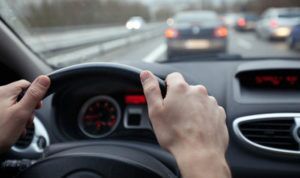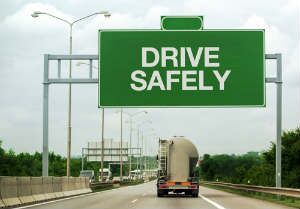
The new year is quickly approaching. If you are like most people, you probably are setting some resolutions that focus on self-improvement or new goals. At Hardison & Cochran, Attorneys at Law, we challenge you to add another resolution to your list: resolve to be a more considerate North Carolina driver in 2017.
Why You Should Resolve to Be a Better Driver in 2017
The North Carolina Division of Motor Vehicles reports that in 2015, traffic accidents increased by 11.1 percent.
If you are wondering why you should resolve be a better, more considerate driver in the coming year, the answer is simple: traffic accidents in North Carolina cause injuries to thousands of people each year. The North Carolina Division of Motor Vehicles reports that in 2015, traffic accidents increased by 11.1 percent. The number of fatalities, when compared to the year 2014, increased by 8.1 percent.
There also was an increase in the number of motorcyclists and bicyclists killed in 201 — by 13.2 percent and 5.9 percent, respectively. The number of pedestrian deaths increased by 14.7 percent, as did the number of car crashes involving teens.
While you may not want to admit it, you may be part of the problem if you speed, rush through intersections to beat changing lights, tailgate other cars, or talk on the phone while driving.
Slowing down, being focused on the task of driving and being more considerate of other motorists and pedestrians on the road can help you avoid accidents. Resolve to be a better, more considerate driver in 2017.
Safe Driving Habits for Preventing Accidents When Driving a Car

If you want to do your part to prevent accidents on North Carolina roads, then set a goal to follow safe driving habits every time you get behind the wheel.
Here are some tips for crash prevention:
- Remember that weather can have an effect on driving. As you drive your vehicle throughout 2017, remember that weather can have a significant effect on vehicle control, traction, visibility, and maneuvering in traffic. Try to avoid driving in adverse weather conditions as much as possible. If you have to drive, be sure to exercise extra caution. Slow your vehicle down, avoid distractions while driving, such as cell phones, and make sure that your car’s brakes, tires, and windshield wipers are in good condition. Remember cars take longer to stop on wet and slick roads so allow more distance between your vehicle and the vehicle ahead of you in adverse weather.
- Watch out for intoxicated drivers, and always drive sober yourself. Drunk drivers are a common cause of accidents in North Carolina, especially around the holidays, when many parties and celebrations include consuming alcoholic beverages. If you see anyone on the road who appears to be intoxicated, keep a safe distance. Stop your vehicle in a safe location, and call the authorities to report the suspected intoxicated driver. Never drive after having a drink yourself. Sometimes, even one drink can be enough to affect your judgment and reaction time. No drink is worth the risk of getting a DUI, or being in a drunk driving accident.
- Put your cellphone away. In today’s digital age, the use of cellphones has become commonplace, and nearly everyone owns a cellphone and uses it to make calls, send text messages, email, and check the web. While we understand that cellphones are an important communication tool in 2017, cellphones and other handheld devices should never be used by the driver of a motor vehicle while the car is moving. If you have trouble resisting the temptation of picking up your cellphone while driving, turn it off and put it in a location you cannot reach.
- Control your emotions while driving. Frustration, anger, and irritation are emotions that every driver experiences from time to time. While we understand how annoying another driver going too slowly or cutting you off can be, try to be calm and considerate. Remember that responding to irresponsible driving with anger or rage is never the appropriate response. Be considerate of other drivers. If you suffer from road rage, explore ways of controlling your emotions, such as practicing deep breathing techniques or listening to calming music. Road rage can lead to aggressive driving, which in turn can lead to an accident.
- Pay attention. As stated above, fatal crashes involving bicyclists, motorcyclists, and pedestrians all increased from 2014 to 2015. Many times, accidents happen because of the failure of one party to pay attention. As a driver, you have a duty to remain alert to your surroundings and the traffic around you. Check and double check your mirrors before changing lanes. Come to a full stop at a crosswalk before proceeding or making a right hand turn. Be aware of oncoming left-turning traffic, and slow down when driving around cyclists, bikers, or pedestrians.
- Talk to family and friends about safe driving, and set a positive example. You are not the only one responsible for driving safely on North Carolina’s roads. We all have a duty to operate our vehicles with reasonable care. You can help others realize this duty by talking to your friends and loved ones about the importance of safe driving. If you are the parent of a child who is learning to drive, this can be especially important, and every time you get in the vehicle, you should set a positive example for safe driving.
- Use seatbelts and appropriate child safety seats. While the use of seatbelts and appropriate child safety seats (different sized and aged children need different safety seats) will not reduce your risk of being in an accident, it can reduce your risk – and the risk of your family – of sustaining serious injuries. Studies consistently show that seatbelts save lives. Every time you get in your car, make sure all of your passengers are buckled up.
We Can Help If You Are in a Crash
 Safe driving habits can save lives in North Carolina. If another driver disregards safety and you are harmed as a result, our lawyers at Hardison & Cochran Attorneys at Law can help you to recover the compensation you deserve. Contact our law offices today for a free case consultation and information about what to do next.
Safe driving habits can save lives in North Carolina. If another driver disregards safety and you are harmed as a result, our lawyers at Hardison & Cochran Attorneys at Law can help you to recover the compensation you deserve. Contact our law offices today for a free case consultation and information about what to do next.





Leave a comment